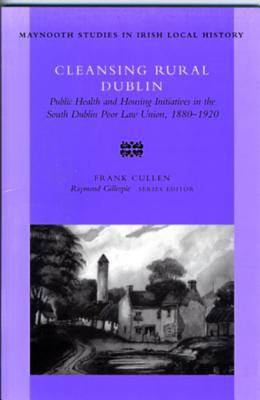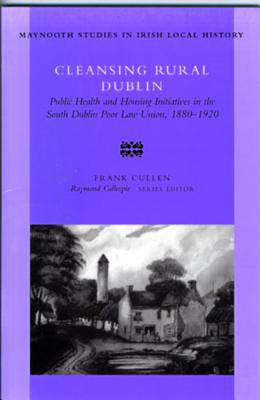
Je cadeautjes zeker op tijd in huis hebben voor de feestdagen? Kom langs in onze winkels en vind het perfecte geschenk!
- Afhalen na 1 uur in een winkel met voorraad
- Gratis thuislevering in België vanaf € 30
- Ruim aanbod met 7 miljoen producten
Je cadeautjes zeker op tijd in huis hebben voor de feestdagen? Kom langs in onze winkels en vind het perfecte geschenk!
- Afhalen na 1 uur in een winkel met voorraad
- Gratis thuislevering in België vanaf € 30
- Ruim aanbod met 7 miljoen producten
Zoeken
€ 17,45
+ 34 punten
Omschrijving
The Ã?Â?Ã?«slum conditionÃ?Â?Ã?Â- in nineteenth-century Dublin is a well-documented feature of the cityÃ?Â?Ã?Â-s past. As a result, much is now known of the overcrowded tenements and their poverty stricken inhabitants. However, yet another community existed in Dublin at this time, which also suffered the indignation of poverty and disease, yet little is known of their plight. These were DublinÃ?Â?Ã?Â-s rural poor, an agricultural community populating the townlands and villages of the wider county beyond the municipality. This pamphlet, while addressing the vital issue of public health in late nineteenth and early twentieth-century Dublin, instead chooses the territorial boundaries of the South Dublin Poor Law Union as its geographical unit of study. Areas covered in detail include the parishes of Rathfarnham, Clondalkin, Tallaght and Crumlin. While a lot of the place-names are still familiar to todayÃ?Â?Ã?Â-s reader, many more have since disappeared. As a study in local history it is concerned primarily with the lives of the local inhabitants of this area, and more specifically, with the impact on these lives of local government politics. Its primary objective therefore, is to explore from both an administrative and social perspective, the trials and tribulations involved in implementing within this union, the Public Health (Ireland) Act, 1878.
Specificaties
Betrokkenen
- Auteur(s):
- Uitgeverij:
Inhoud
- Aantal bladzijden:
- 64
- Taal:
- Engels
- Reeks:
- Reeksnummer:
- nr. 40
Eigenschappen
- Productcode (EAN):
- 9780716527381
- Verschijningsdatum:
- 1/09/2001
- Uitvoering:
- Paperback
- Formaat:
- Trade paperback (VS)
- Afmetingen:
- 140 mm x 216 mm
- Gewicht:
- 104 g

Alleen bij Standaard Boekhandel
+ 34 punten op je klantenkaart van Standaard Boekhandel
Beoordelingen
We publiceren alleen reviews die voldoen aan de voorwaarden voor reviews. Bekijk onze voorwaarden voor reviews.









